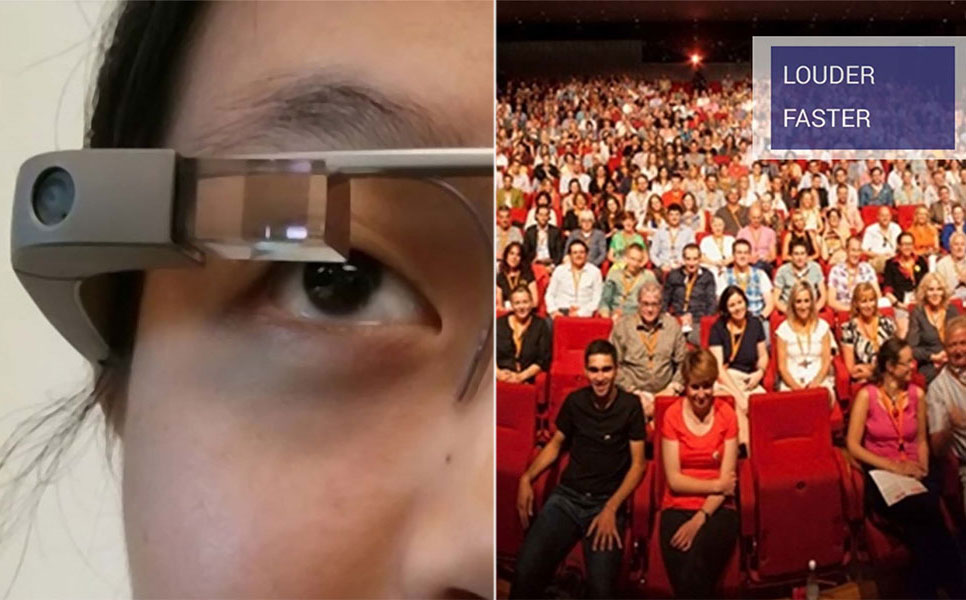Data Science and Public Speaking
Computer scientists and cognitive scientists at the University of Rochester are using data science to help make the world a better, more connected, and healthier place.
 Speaking in public is the top fear for many people. Now, researchers from the Human-Computer Interaction Group have developed an intelligent user interface for “smart glasses” that gives real-time feedback to the speaker on volume modulation and speaking rate while being minimally distracting and working in real time. This feedback allows a speaker to adjust the volume and speaking rate or continue as before, helping to increase confidence along the way. The interface is named Rhema, which means “utterance” in Greek.
Speaking in public is the top fear for many people. Now, researchers from the Human-Computer Interaction Group have developed an intelligent user interface for “smart glasses” that gives real-time feedback to the speaker on volume modulation and speaking rate while being minimally distracting and working in real time. This feedback allows a speaker to adjust the volume and speaking rate or continue as before, helping to increase confidence along the way. The interface is named Rhema, which means “utterance” in Greek.
Ehsan Hoque, assistant professor of computer science and senior researcher on the project, has used Rhema while giving lectures. “My wife always tells me that I end up speaking too softly,” he says. “Now, it’s Rhema reminding me to keep my volume up.” He feels the practice has helped him become more aware of his volume, even when he is not wearing the glasses.
Hoque and others believe that live feedback displayed in a private and nonintrusive manner could also be useful for people with social difficulties (e.g., Asperger syndrome), and even for people working in customer service.
